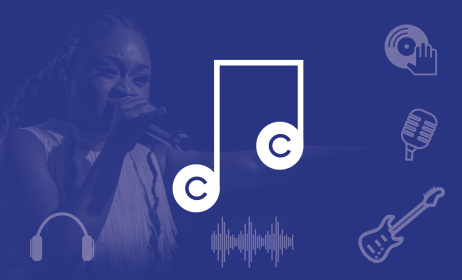US House of Reps sends Twitter tough questions over music licensing
A bipartisan group of 22 members of the US House of Representatives this week sent a letter to Twitter CEO Jack Dorsey demanding answers on how his platform will address the issue of copyright infringement.
 Twitter CEO Jack Dorsey.
Twitter CEO Jack Dorsey.
The committee is led by representative for North Dakota congressman Kelly Armstrong (Rep) and district of New York congressman Hakeem Jeffries (Dem), and it wants to know how the social media network will pay musicians before the 27 August deadline.
“Creative content drives engagement on Twitter, yet unlike numerous other platforms, Twitter has not acquired licences necessary to ensure that all creators are properly compensated for use of their work,” the letter reads. “Given the pervasiveness of this issue, we would like to have a better understanding of how Twitter intends to effectively address these concerns.”
The letter expresses concerns about Twitter’s apparent refusal to resolve the issue despite having the right tools to do so, and cites 1.6 million Digital Millennium Copyright Act takedown notices received in the first half of 2020.
The letter continues: “While Twitter offers a more sophisticated API [application programming interface] to academic researchers for free, it denies these tools to creators whose infringed works help generate revenue for the company. Between refusing to pay creators for their works and obstructing their discovery of infringing works, it appears that unauthorised use of copyrighted works is an unacknowledged part of Twitter’s business model.”
The letter suggests that the recently launched Twitter’s Tip Jar feature, which lets users pay creators directly, demonstrates “a lack of understanding and respect for the rights holders involved in the content posted on Twitter” and implores the platform to adopt a more targeted approach.
“Not only would this improve user experience by granting lawful access to copyrighted works, but it would also ensure that rights holders are properly compensated for their contribution to the content.”
The letter lists three main concerns:
1. What will Twitter do to enable content owners to meaningfully search for and identify infringement of their works at a scale commensurate with the amount of infringing tweets occurring on the platform at no additional cost to them?
2. Tweets can be uploaded in a fraction of a second, and hundreds of millions are posted to Twitter every day. What is Twitter doing to ensure that takedown notices are addressed in a manner that corresponds with that speed and volume?
3. Will Twitter add robust content protection technology across all of its platforms and implement it effectively to decrease the posting and reposting of infringing content?
In response to the letter, a Twitter rep told Variety that ”significant resources to quickly respond to copyright takedown notices and comply with its legal obligations, pursuant to the Digital Millennium Copyright Act.”
This is not the first time Twitter has come under fire for its nonchalant response to copyright infringement on the platform. In December, US industry body the Recording Industry Association of America accused Twitter of large-scale piracy, and in March Dorsey received a letter from several US industry organisations about Twitter’s lackadaisical approach to copyright.






























Comments
Log in or register to post comments